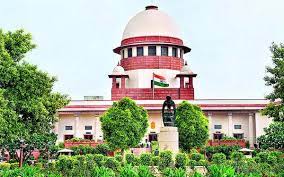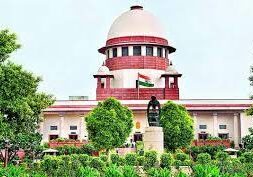
NEW DELHI, May 2: The Supreme Court on Monday upheld the government’s current vaccination policy to protect communitarian health as well as the individual’s rights against forcible vaccination but found certain vaccine mandates imposed by State governments/Union Territories, which tend to deny access to basic welfare measures and freedom of movement to unvaccinated individuals, disproportionate.
A Bench led by Justice L. Nageswara Rao said that such vaccine mandates wilted in the face of “emerging scientific opinion” that the risk of transmission of COVID-19 infection from an unvaccinated individual was almost on par with that from vaccinated persons.
The court directed the Centre to set up a virtual public platform at the earliest to facilitate individuals and private doctors to report adverse vaccine events without compromising their privacy. “Information related to adverse events is crucial to create awareness about vaccines and their efficiency, apart from contributing to scientific studies about the pandemic… There is a pertinent need for collection of data on adverse events and wider participation,” Justice Rao, who authored the judgment, observed.
The Bench also comprising Justice B.R. Gavai, in a judgment, held that India’s paediatric vaccination policy against the COVID-19 virus was in tune with “global scientific consensus” and the opinions of expert bodies like the World Health Organisation, the United Nations International Children’s Emergency Fund and the Centres for Disease Control and Prevention. The court said it did not want to “second guess” these expert opinions on the basis of which the government had implemented its paediatric vaccination policy.
However, the court directed the Union government to ensure that the findings and results of the relevant phases of clinical trials of vaccines already approved by the regulating authorities for administration to children be made public at the earliest, if not already done. The court said the government had already disclosed segregated clinical data on phase three trials.
It held that materials published by the government did “not warrant the impression that the emergency use authorisation for Covishield and Covaxin vaccines was given in haste without thorough review of the data.” The Bench said though the government had a wide latitude to frame policy affecting public health based on expert medical opinion, the court could not be barred from scrutinising whether the policy was unreasonable, manifestly arbitrary and affected the right to life of individuals.
The court struck a balance between individual right to bodily integrity and refuse treatment with the government’s concern for public health. “With respect to bodily integrity and personal autonomy of an individual in the light of vaccines and other public health measures introduced to deal with the COVID-19 pandemic, we are of the opinion that bodily integrity is protected under Article 21 (right to life) of the Constitution and no individual can be forced to be vaccinated,” the Supreme Court laid down.
A person has the right under Article 21 to refuse treatment, the court acknowledged. “Personal autonomy of an individual, which is a recognised facet of protection guaranteed under Article 21 encompasses the right to refuse to undergo any medical treatment in the sphere of individual health,” Justice Rao observed. However, when the issue extended to “communitarian health”, the government was indeed “entitled to regulate issues.”
But the government’s right to regulate by imposing limits to individual rights for the sake of protecting public health was also open to judicial scrutiny. Courts had the authority to review whether the government’s interventions into the personal autonomy of an individual and right to access means of livelihood met the “three-fold” requirements as expounded in the Constitution Bench judgment in K.S. Puttuswamy case (the judgment which upheld the right of privacy as a constitutional right under Article 21).
The court concluded that the Union government’s current vaccination policy met the requirements and “cannot be said to be unreasonable and manifestly arbitrary.” The policy reflected the “near unanimous views of experts on the benefits of vaccination in addressing severe infection, oxygen requirements, hospital and ICU admissions, mortality rate and stopping of new variants from emerging.”
The court, however, said neither the Union government nor the States had produced any “material” to counter the opinion raised in the petition filed by Jacob Puliyel, a former member of National Technical Advisory Group on Immunisation represented by advocate Prashant Bhushan, that a vaccinated individual could spread the virus as much as his or her unvaccinated counterpart.
“In light of this, the restrictions imposed on unvaccinated individuals by various vaccine mandates by the State governments and Union Territories are not said to be proportionate,” Justice Rao noted. The court hence “suggested” that, as long as the infection rate remained low or until any new development or research justified the imposition of “reasonable proportionate restrictions on unvaccinated individuals”, all authorities, including private organisations and educational institutions, review their restrictions for the time being.
The Bench clarified that “in the context of the rapidly evolving situation presented by the pandemic, our suggestion to review the vaccine mandates imposed by the States/Union Territories is related to the present situation alone and should not be construed as an interference in the lawful exercise of power by the executive to take suitable measures against the spread of infection.”
The judgment was delivered on Dr. Puliyel’s challenge that certain vaccine mandates notified by States, including those that made vaccination a precondition for accessing any benefits or services, were violative of the rights of citizens and unconstitutional.
(Manas Dasgupta)













